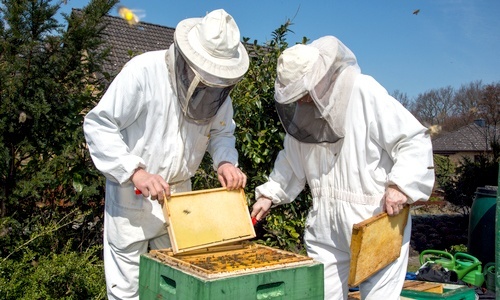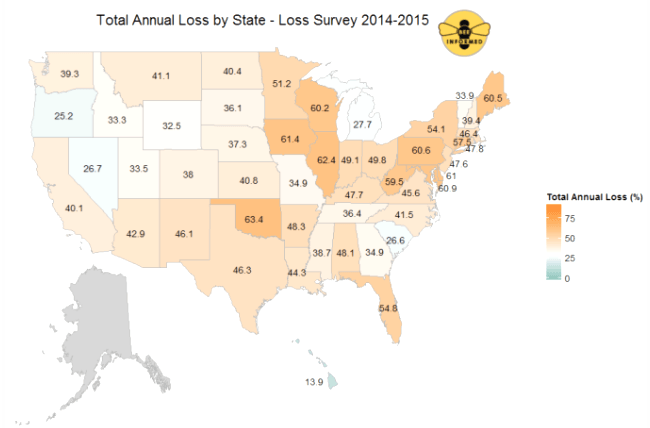

A growing body of evidence has pointed to one class of pesticides in particular, neonicotinoids, as the culprit to the massive bee die-offs. In fact, the European Union banned the three most widely used neonicotinoids in 2o13, but they are still used widely in the U.S.
Environmental advocacy organization Friends of the Earth noted that the extreme bee losses highlight the urgent need to restrict pesticides to protect pollinators. “Bayer, Syngenta and Monsanto make billions from bee-killing pesticide products while masquerading as champions of bee health,” said Tiffany Finck-Haynes, food futures campaigner with Friends of the Earth. “Are their profits more important than our food supply? Are they more important than the livelihoods of America’s farmers? The Obama administration must act now to restrict neonicotinoid pesticides that threaten America’s bees, farmers and food security.”
There’s been a growing movement to save the honeybees, which perform about 80 percent of all pollination worldwide, according to Greenpeace. Just two months ago, the White House received four million petition signatures calling on the Obama administration to put forth strong protections for honey bees and pollinators. This past April, the U.S. Environmental Protection Agency announced a moratorium on new or expanded uses of neonicotinoids while it evaluates the risks posed to pollinators. And last June, the Obama administration also established the Pollinator Health Task Force charged with improving pollinator health and assessing the impacts of pesticides, including neonicotinoids, on pollinators.
Friends of the Earth and their allies have also successfully campaigned for more than twenty garden stores, nurseries and landscaping companies, including Lowe’s and Home Depot to eliminate neonicotinoids from their stores. BJ’s Wholesale Club and Whole Foods have also taken steps to restrict these pesticides.
“The solution to the bee crisis is to shift to sustainable agriculture systems that are not dependent on monoculture crops saturated in pesticides,” Finck-Haynes continued. “It’s time to reimagine the way we farm in the United States and incentivize organic agriculture practices that are better for bees and for all of us.”
YOU MIGHT ALSO LIKE
14 Heartbreaking Photos That Will Inspire You to Recycle
David Suzuki: How to Save the Monarch Butterfly
Lowe’s to Stop Selling Bee-Killing Pesticides to Protect Pollinators

 233k
233k  41k
41k  Subscribe
Subscribe 
